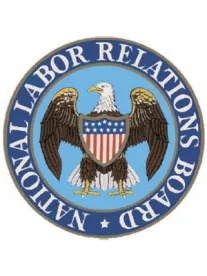On March 22, 2023, the General Counsel of the National Labor Relations Board (NLRB or the “Board”), Jennifer Abruzzo, issued a memorandum providing guidance in light of the NLRB’s recent decision in McLaren Macomb, 372 NLRB No. 58 (2023). As previously reported, the Board in McLaren Macomb held that overly broad non-disclosure and non-disparagement provisions in severance agreements violate employee rights under the National Labor Relations Act (NLRA or the “Act”). The General Counsel’s memorandum—which is directed to the Board’s regional offices over which she exercises supervisory authority—seeks to clarify the scope of the McLaren Macomb decision, including: the types of provisions that may violate the NLRA; language that may be acceptable in light of the decision; whether the decision applies retroactively to previously executed severance agreements; and the potential applicability of the decision to supervisors. The memorandum is not legally binding, but it does give employers a more informed roadmap for how the Board initially will handle unfair labor practice (“ULP”) charges challenging severance agreements.
General Counsel Views Scope of Decision in McLaren Macomb Broadly
The memorandum offered several broad views of the Board’s decision in McLaren Macomb. Here are a few highlights:
-
Although the General Counsel acknowledged that severance agreements are not altogether banned by the decision, she said that the decision applied to any overly broad provisions that “affect the rights of employees to engage with one another to improve their lot as employees.” The General Counsel listed a number of provisions other than non-disclosure and non-disparagement clauses that could be problematic for employers to include in severance agreements, including non-compete clauses, no solicitation clauses, no poaching clauses, liability releases and covenants not to sue extending beyond employment claims accrued as of the effective date of the agreement, and other provisions prohibiting cooperation in current or future investigations or proceedings.
-
The General Counsel offered some guidance on what she considered to be lawful “narrowly-tailored” non-disclosure and non-disparagement clauses . As to confidentiality and non-disclosure clauses, she opined that clauses containing language “narrowly-tailored to restrict the dissemination of proprietary or trade secret information for a period of time based on legitimate business justifications” would be lawful. With regard to non-disparagement provisions, she stated such clauses would be lawful if limited to employee statements about the employer that constitute defamation—that is, provisions prohibiting statements that are untrue and made with knowledge of their falsity or with reckless disregard for their truth or falsity. The General Counsel did not believe that an individual’s request for confidentiality or non-disparagement language would alter the analysis. The memorandum added that employers may not be able to simply include a disclaimer or “savings clause” that carves out NLRA rights to cure overly broad provisions, albeit the General Counsel noted such language may help an employer’s case if sufficiently specific.
-
The memorandum claims the Board’s decision in McLaren Macomb has retroactive effect, and, therefore, calls into question severance agreements entered into prior to the date of the decision, February 21, 2023. The General Counsel opined that maintaining and/or enforcing a previously-entered severance agreement with provisions that unlawfully restrict an employee’s NLRA rights constitutes a continuing violation of the Act by the employer. The practical import of this is that the General Counsel may argue that a ULP charge asserting violations based on a severance agreement offered outside the NLRA’s six-month statute of limitations is still timely, forcing employers to look back further than they may otherwise expect to defend their severance agreements. The memorandum further recommended that employers consider contacting individuals subject to severance agreements to inform them that any problematic provisions are null and void and that they will not seek to enforce them in light of the McLaren Macomb decision.
-
The memorandum notes that the McLaren Macomb decision may apply to supervisors, who are generally not protected by the Act, under certain limited circumstances. Specifically, the General Counsel stated that the holding would apply to severance agreements proffered to supervisors or managers who were retaliated against because they opposed their employer’s directives to commit a ULP against employees.
In what may be considered some “good news” for employers, the memorandum did explain that if a provision in a severance agreement is determined to be unlawful, that particular provision will generally be voided, as opposed to voiding the entire agreement, although the General Counsel did highlight that the particular facts of a case could warrant a different outcome.
Conclusion
Again, the General Counsel’s memorandum merely reflects the General Counsel’s views of the McLaren Macomb decision and is not itself law. However, it does provide a roadmap for how the Board initially will interpret and apply the holding in McLaren Macomb when faced with ULP charges challenging severance agreements.






 />i
/>i

